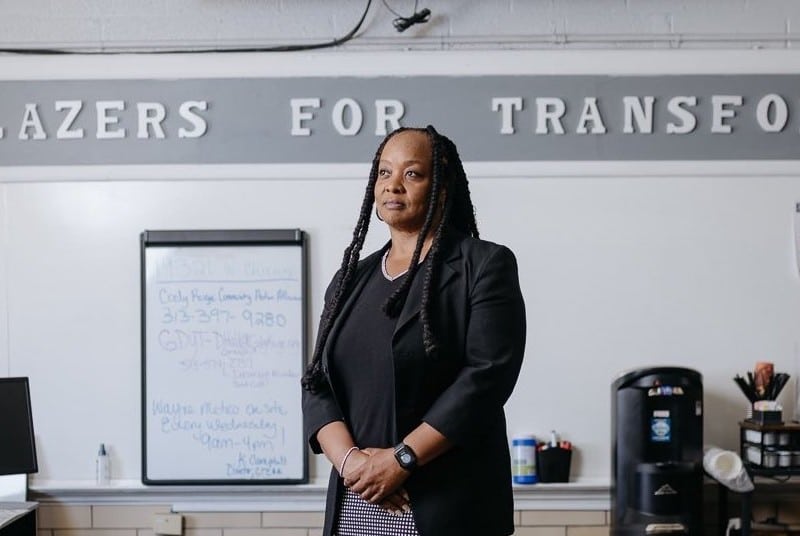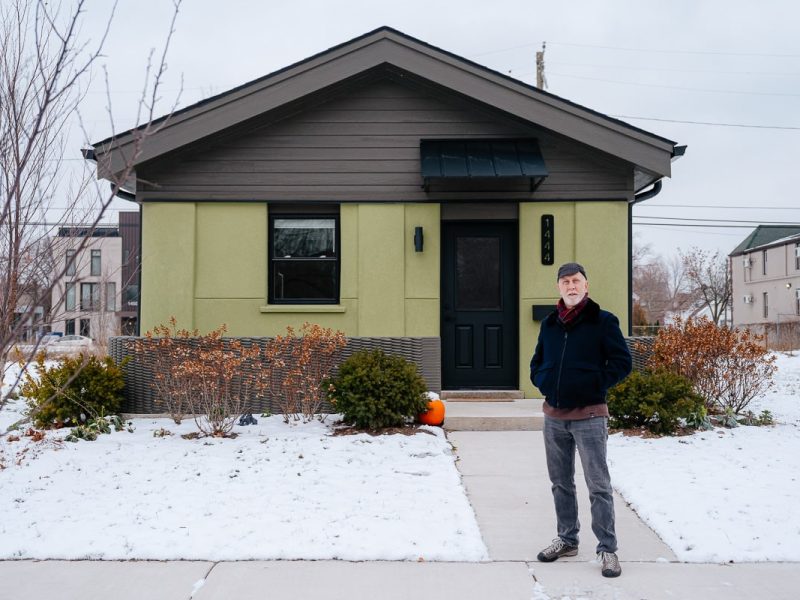Detroit coworking child care space leverages funds to support parents through COVID-19
Krista McClure has been bringing metro Detroit parents together since 2017 in her family-friendly, coworking space on West McNichols Road. Now, the owner of Detroit Parent Collective sees a chance to grow, and to double down on the inclusivity she set out to achieve.
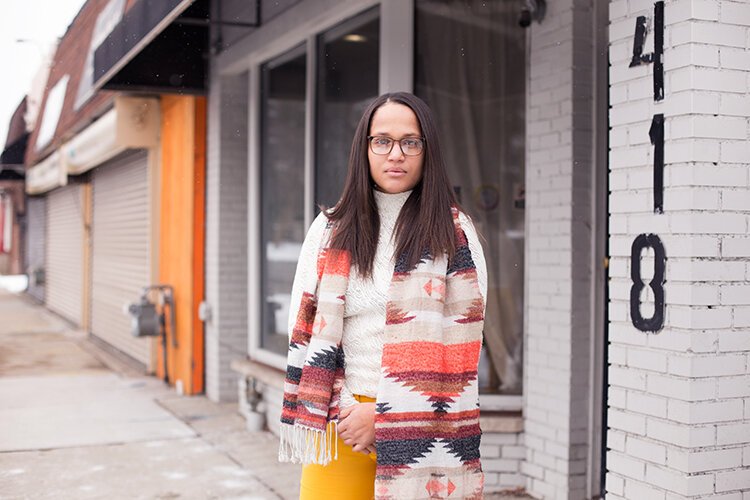
Krista McClure believes the COVID-19 pandemic has demonstrated, more than anything, just how much mothers do in society. Working mothers have received significant national media attention for the pressures they face, with women absorbing the majority of pandemic-related job losses and extreme measures such as “primal scream” hotlines echoing parents battling work-life balances, but McClure wants that conversation to be widened. She recognizes the stigma attached to stay-at-home moms and wants to see them included in the narrative.
“Women can be so competitive, a lot of the stories have been about the weight on the working mother,” she says. “But this is a moment for all women — we collided in this, we might be walking different paths but we still need to manage finances, food, children.”
“I want to open up that lens and say if there’s anything we have learned, it is that’s what most important is within our four walls.”
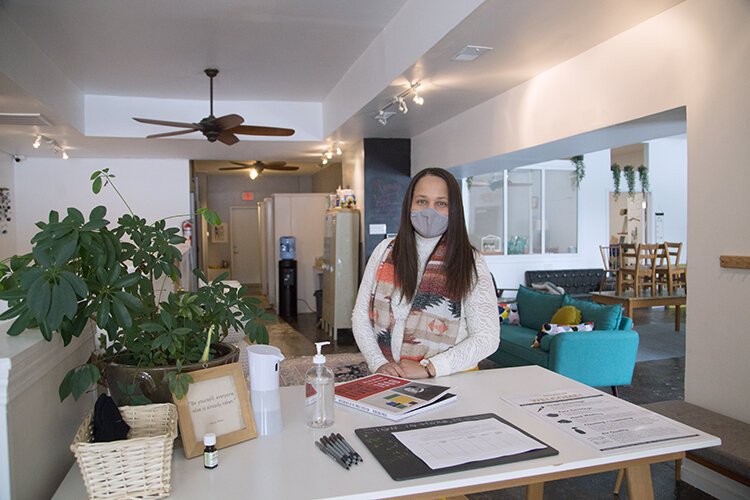
Bridging that divide, and building empathy, is a key motivation for McClure’s business, Detroit Parent Collective (DPC), and mending the motherhood gap is just one part of the initiative.
McClure, who was a teen mother and high school drop-out, knew the statistics were stacked against her, but worked for the City of Detroit to gain experience in the education and economic development sectors. In 2016 she saw a way to put her tenacity, and experience, to use.
“I found myself staring at what would be two empty buildings opposite from Marygrove College,” she says.
She put in an auction bid on the 8418 W. McNichols Rd. property, and after succeeding she quickly gathered contractors to develop the space. Just one year later DPC was open for business, an initiative that McClure describes as her “third baby.”
DPC’s home-like setting offers a coworking space for caregivers, with on-site child care and a cooperative preschool, with the broader goal of helping metro Detroit families overcome prejudices based on socioeconomic class, race, and ethnicity.
“It’s a space that’s open to all,” says McClure. “We thought ‘how do we bring our wonderful white peers together with our Black peers, and recognize more of our similarities than our differences?’”
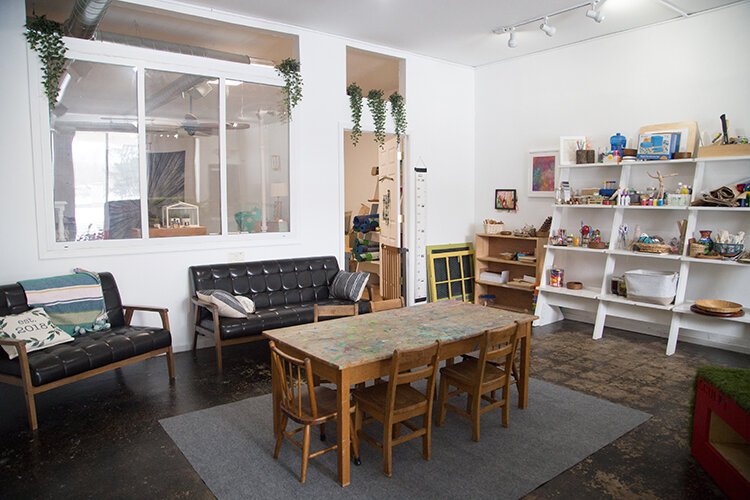
Explaining “the magic that’s happening behind those doors” is one of the biggest challenges McClure has encountered, and communicating just how important this work is.
“A local funder actually shared with me that my biggest challenge is that we are working against white supremacy, we are working against a system that is designed to keep people divided,” she says. “We are changing and disrupting the system, so foundations have to be very careful when offering grants. Foundations on the ground might love our work but their boards might not love this work.”
By 2018, DCP was growing so swiftly it began pulling families from as far as Franklin, Ann Arbor, and St. Clair Shores. While it demonstrated the need for connection, McClure says it was getting away from their core mission. Consequently, McClure “hit pause” in 2019, and hosted a series of focus groups to garner the knowledge she needed to make the collective more inclusive.
By the time COVID-19 hit, McClure and her team were well-connected with what their community needed — and they got busy. With the help of a grant from United Way for Southeastern Michigan, the collective worked with Plymouth-based toy-maker Palumba to package nature-based learning kits, meeting an immediate need in their networks.
“The idea is that they encouraged parents to get outdoors with their kids,” says McClure. “Parents were already dealing with the trauma of trying to work or deal with unemployment, and this allowed a moment of calm in the chaos.”
The kits were so popular the team used a grant from LISC Detroit to host a second round, this time specifically tailoring the packages to what cohorts needed most, such as supplies for virtual schooling.
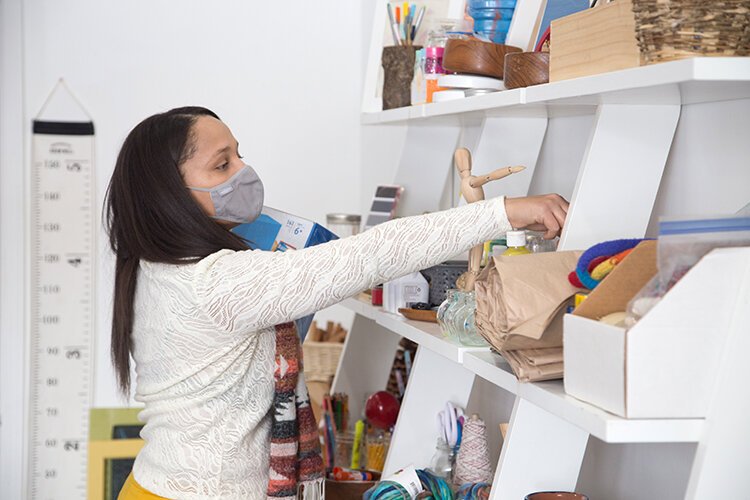
McClure believes that as a woman of color, she may have access to grant funding that others don’t and she sees it as a responsibility to leverage funding and “put money in the pockets” of initiatives and community partners she sees working toward equity.
One example is the partnership her team struck up with Nature’s Playhouse in Ferndale to support women’s mental health during COVID-19. They partnered to offer a 10-week series on mental health services, using part of the LISC grant to develop a Health Insurance Portability and Accountability Act (HIPAA) compliant program.
“That was really important to me,” says McClure. “I wanted to be very conscious of what that looked like.”
DPC has just wrapped up a winter series, after re-launching their (smaller) in-person groups and have, thankfully, remained COVID-19 free. The collective reduced its numbers from 25 families to 12 to cope with precautions, and prioritized more families over more staff, although McClure was able to raise staff compensation from $15 per hour to $25 during the crisis.
Now, McClure is looking to grow the collaborative and is joining LISC’s new Building Innovation for Equitable Child Care program, which will help fund community partners pursuing a co-location approach, incorporating affordable child care facilities.
“We are one of 10 across the U.S. to be working on a planning and implementation grant, and what it could look like nationally,” says McClure.
The pilot program is supported by a grant from Pivotal Ventures, an investment and incubation company created by Melinda Gates.
“The pandemic has made clear that if we want an economy that works for everyone we can’t treat child care as an afterthought,” says Jennifer Stybel, caregiving lead at Pivotal Ventures. “We need new ideas and fresh thinking to fix America’s broken caregiving system. Pivotal Ventures is excited to support LISC’s innovative approach to bring quality, affordable child care closer to the parents and businesses who depend on these services.”
The support is proof, McClure says, of the power of connecting.
“It comes down to your network,” she says. “You have to build, build, build.”
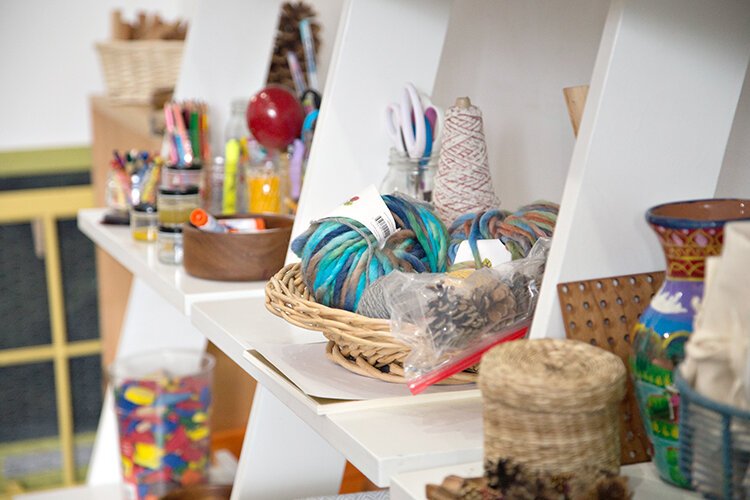
This is part of a series supported by LISC Detroit that chronicles Detroit small businesses’ journey in response to the COVID-19 pandemic.


